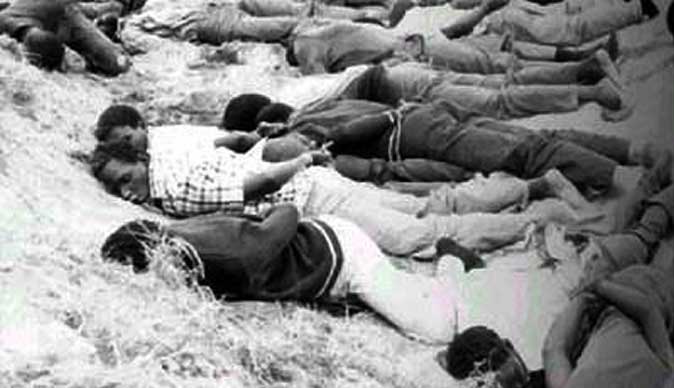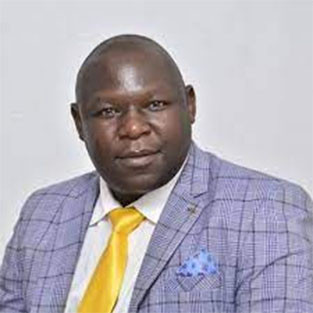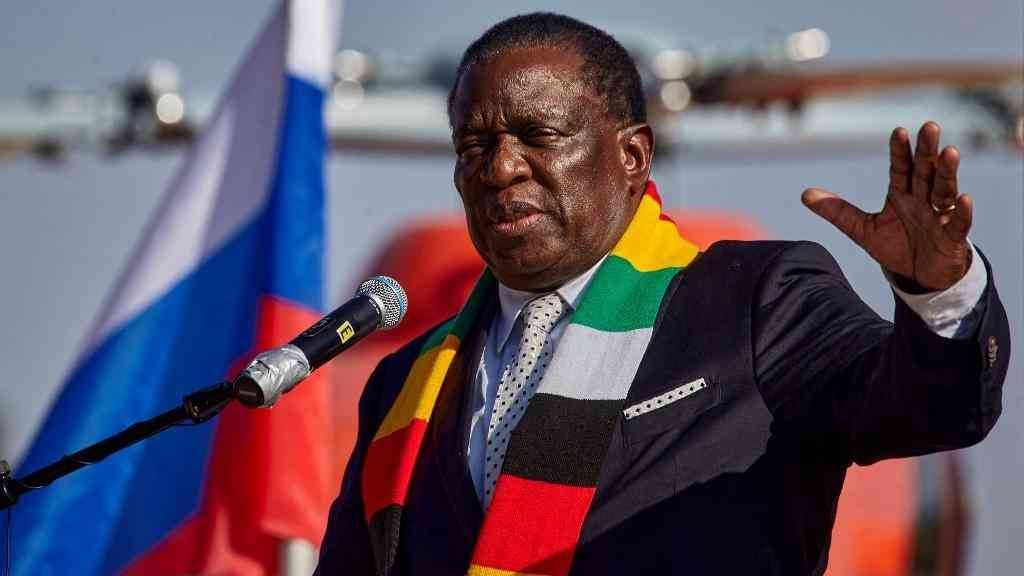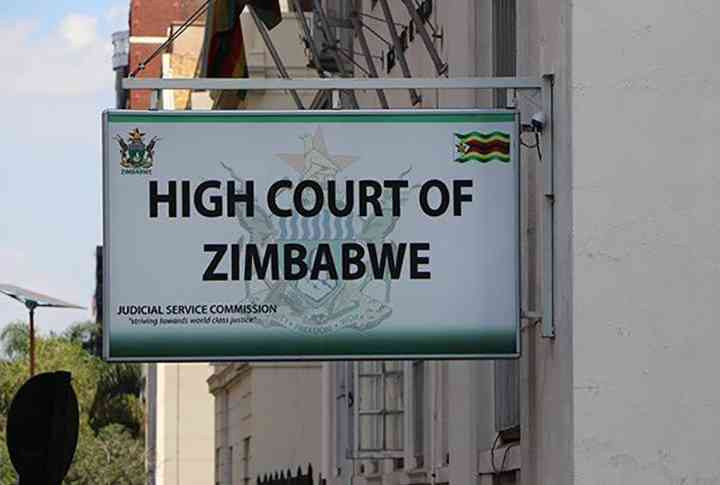
The big interview BY OBEY MANAYITI
The announcement by the government that it was rolling out a number of measures to help victims of Gukurahundi to get birth certificates and death certificates for their slain relatives has divided opinion.
President Emmerson Mnangagwa, largely seen as a key player in the atrocities in Matabeleland and Midlands, was accused of trying to cleanse himself through the measures that will include the exhumation and reburial of some of the victims still interred in mass graves three decades after the killings ended.
Mnangagwa’s spokesperson George Charamba (GC) told our senior reporter Obey Manayiti in an exclusive interview that the president was only implementing measures put in place by his predecessor Robert Mugabe’s government.
Charamba said it was also unfair to describe Mnangagwa as a Gukurahundi architect because he was only taking orders from Mugabe.
He also spoke about the compensation of white commercial farmers who lost their land during the controversial fast-track land reform programme, which he said was an obligation the government could not run away from. Below are excerpts from the interview.
OM: The unveiling of a number of initiatives to end the plight of Gukurahundi victims has seen a number of groups raising questions about the government’s intentions. Please give us a brief background behind the new measures.
GC: These are not new measures. Issues that we have faced in respect of the disturbances in Matabeleland relate to issues of compensation, issues relating to registration of birth certificates and other important documents and, thirdly, issues concerning reburials.
- Chamisa under fire over US$120K donation
- Mavhunga puts DeMbare into Chibuku quarterfinals
- Pension funds bet on Cabora Bassa oilfields
- Councils defy govt fire tender directive
Keep Reading
These are the major issues that we have been facing except decisions on these three areas were taken not even by the current president, decisions were taken during the era of the former president (Robert Mugabe), but the only difference is that there wasn’t the political will or urgency to it.
These are matters that were dealt with by the former vice-presidents such as Joseph Msika, John Nkomo and then passed on to Phelekezela Mphoko, but were not concluded.
What the current president is being persecuted for is to show greater diligence in implementing decisions that were passed even before his presidency.
The issue regarding birth certificates is a long-established position and you will realise that it wasn’t even affecting Matabeleland only, but practically every province and this is why teams were despatched to make sure the registration would happen and this time around not only on the vouching of relatives, but on the basis of community leaders, church leaders or any other persons who are recognised as community leaders. This is an old position.
Secondly, on the issue of exhumation and reburials, there is a law which outlines procedures, which are followed for that to happen and this is an old law.
It is not a law that has been created because of the new dispensation, it is a law that remained in abeyance simply because it had not been utilised.
Now we are looking at that law and say we have this problem that has been outstanding for so long but which has also been refreshed by what happened in Chimanimani.
What are the procedures and if you want to do an exhumation there are procedures that must be done to approach the ministry of Home Affairs who are the administrators of that Act.
This is why the president, in his follow-up meeting with CSOs (civil society organisations) in Bulawayo then dispatched the secretary for Justice (Virginia Mabhiza) because he is very much aware that this is a legalistic process.
This is what is going to happen, old law dealing with the old problem for which there was a bit of inertia in terms of implementation.
OM: Are the measures in any way an indication that the government is finally acknowledging that there were atrocities in Midlands and Matabeleland?
GC: There was conflict, which claimed lives and you noticed I never used words such as atrocities because if you are true to history, you will know that in a conflict situation atrocities do happen on both sides of the conflict.
We do have quite a number of people who died or suffered at the hands of the dissidents.
We also have quite a number of people who are said to have suffered at the hands of security forces then.
Once you acknowledge that there is a conflict situation then necessarily there is some suffering, which is what motivated the former president to describe it as a moment of madness. So it cannot be a new acknowledgement.
It isn’t, but what has happened is that government has awoken up to its responsibilities in dealing with that question frontally.
OM: What took the government so long to acknowledge Gukurahundi and the devastating impact it had on the communities in those two provinces?
GC: You are right that it took so long to do something about it, if you are looking at government as an institution, but if you are looking at the dispensation as a system sired in 2017, it cannot be new.
What we have seen is that because of the new dispensation, there has been traction on a matter, which has been long delayed?
So it cannot be long unless if you are inviting me to explain the apparent lack of traction from the time of conflict until now, in which case really at the time of conflict I was a student at the University of Zimbabwe.
OM: This has been more than three decades…
GC: I think the issue that must be raised is not the three decades that have lapsed.
What must be raised and celebrated is the fact that barely two years into office, the new president has decided to definitively deal with the long outstanding issue, that is the issue.
OM: The government said the move to ensure that the victims get identity documents and access to medical treatment was motivated by presentations made by the Matabeleland Collective. Does the government believe the groups have a mandate to speak on behalf of the victims?
GC: I don’t know whether the idea is to give those groups a voice, the idea is to reach all the affected persons.
I think we must draw a distinction between advocacy work and impact of conflict on families.
The priority of government is to access the families that were affected by that conflict.
This is one area where we have had a certain group of our citizens who are actually averse with the resolution of Gukurahundi. Why? Because they have over-invested in it.
They want it to be a serial grievance on the basis which to build politics present and the future.
Now that ED has moved to resolve the matter, the same groups which were agitating for resolution of the Gukurahundi issue are now moving goalposts.
First of all, they didn’t want ED to meet the civil society groups that he met in Bulawayo and I happen to know that all the NGOs that met with the president came under tremendous pressure not just from the NGOs in Harare who had nothing to do with the problem in Matabeleland, but also from embassies, which were so bitter that they said: ‘Why are you moving to resolve an issue about which we have invested so much?’
Even if you look at the age group of the people agitating — first of all, they are not related to people who were victimised and, secondly, they are not the age group of people who were affected by Gukurahundi, but they are political aspirants who believe that this is a good basis for harvesting sympathy and votes.
OM: Should the government not be giving the victims an opportunity to state what happened to them and the kind of redress they want instead of this top-down approach?
GC: Well, except how does a process which is mediated by community leaders become top-down?
How is the process which is mediated by the NPRC (National Peace and Reconcialiation Commission) become top-down?
I think the so-called down is up because these are power elites who have been curling politics outside this conflict, but who pretend to put on the garb of the injured and of the community.
What we have now done is to remove the rug from under their feet so we reach the persons who were affected by the conflict.
So it is very much targeted and it is very much activating the real victim.
OM: What is your reaction to criticism that in the absence of truth-telling and a genuine apology from the main actors during Gukurahundi, the measures being rolled out by the government will be meaningless?
GC: If truth means taking into account views of serial political agitators, then certainly they will find this process untruthful. But if truth means reaching out to the actual persons who were impacted by the conflict, then truth has been taken on board.
By the way, I think let’s not be dramatic about it, government is motivated by the needs and aspirations of the persons that were affected.
They want registration of necessary documents and they want exhumation and decent burial of their relatives and if possible some form of compensation.
That is what will bring a lasting solution to the families that are affected.
Then you have on the other hand some who have positioned themselves as happened in South Africa to carve careers out of an institutionalised truth and reconciliation commission.
Let’s just look around within our region and ask: Did the crimes of apartheid stand healed merely because there was a healing and reconciliation commission?
Is South Africa not still writhing from the agonies of apartheid as we speak?
It was a political question, it was not a humanitarian interposition.
Our approach is community- based, it is family-targeted, it is individual-targeted because the idea is to give these affected communities a fresh start to life.
OM: Are Mnangagwa and other top government officials accused of being architects ready to speak about what really happened during Gukurahundi?
GC: Not for the edification of political careerists and in any case I hate the word architect because it suggests personal liability.
They were part of the government of the day which reported to a commander-in-chief, which reported to a president.
You cannot suddenly make the junior much more accountable than the person who was in overall charge.
The second aspect is that guns were not shooting from one side, it wouldn’t have been a war.
Guns were shooting from both sides, which is why it was a conflict, you don’t have a one-sided conflict, which means culpability doesn’t just rest on one side.
The only difference is that others were in government while others were an insurgency.
By its very nature, insurgency dissolves, but governments don’t dissolve, therefore, the issue of culpability, truth or accountability is shared.
By the way, there is no one-sizefits-it-all template for conflict settlement and resolution or postconflict resolution.
We have to evolve our own solution and we are doing things the Zimbabwean way, knowing the needs and requirements of the affected communities.
OM: The government speaks of decriminalising discussions about Gukurahundi. What law criminalised Gukurahundi discussions when the government position has always been that Zimbabwe has freedom of expression?
GC: Let me put it this way, even conflicts do have life cycles.
There is a time when a conflict becomes just too sensitive, so close to its occurrences to become discussable.
Tolerance level of society will be very so thin and you choose between opening fresh wounds and therefore renewing that conflict or allowing time to bring a sense of sobriety and then moving back to do the necessary amends with the affected.
What we are looking at is a situation where this society has in fact become of age and is now mature enough to look at its ugly past.
So really, it is not a matter of law, it is a matter of the maturation of processes, especially one that is so sensitive and so depressing as the one we are talking about.
Don’t forget I was the press secretary of the then president Canaan Banana at the signing of the Unity Accord.
There was a time when no one would ever want to talk about it, it was like a ghost believed to exist, but no one wanted to talk about it. But with time society starts to come to terms with some of its tragic moments and to draw lessons as well as to heal the wounds.
That is what is happening.
OM: How will the exhumations of Gukurahundi victims be done without compromising any truth-telling process? Will this not compromise evidence of mass killings?
GC: I am trying to understand what it is that you are trying to say.
There is an acknowledgement that conflict was dual.
That we are not talking about the persons who got killed by dissidents doesn’t mean there were no people who were killed.
I can give you an example from our own office, a relative of the chief secretary died near the Zvimba area.
I know of a family in Mberengwa where the victim, who is still living and getting medication, was amputated as we speak.
It is just you know it is an issue of scale, but there are many cases, which counter balances what was suffered by communities in Matabeleland.
I see people talking about Matabeleland North and South and Midlands, here in Mashonaland West people died except no one talks about it, but that is not where we are going.
If we had drawn a line to say this was a bad conflict, which must never recur from which we must draw lessons but that there are victims of that conflict who still need help, then the spirit must be one to make interventions, which allows this country to move forward.
If you go for retribution, then there is a real risk that the truth begins to wreck the national project, there is also a real risk that we go into a phase of recrimination and I don’t know if that is the intention.
I sit very close to leadership and across the divide, what I am getting is that let’s atone for this bad patch and allow this country to move forward with new lessons drawn from an old conflict.
OM: In light of the measures announced by the government, is there any assurance that the Gukurahundi victims will get justice?
GC: I see you keep suggesting that the victims are just on one side.
What they will get is an opportunity for a fresh start. I don’t know whether you call that justice.
If by justice you mean standing in a court of law and having someone convicted and sentenced?
Maybe that is not the approach that we are taking. We are saying let’s see how we can rehabilitate, repair and reintegrate. That is our approach.
OM: At the height of Gukurahundi, the government seized properties ex-Zipra combants bought using their demobilisation pay-outs and has over the years refused to return them. Is there any likelihood that these properties will be returned to their rightful owners in light of the new developments?
GC: This is a question that has been with us for a long time and I happen to know that there are discussions that are underway. Why don’t we allow it to mature?
OM: The government’s move to compensate white commercial farmers has sparked criticism including by South African opposition leader Julius Malema who called Mnangagwa a sell- out. What is your reaction to such criticism?
GC: It is not about the reaction but explaining and maybe you guys in the media must feel guilty that your messages are not getting through to the readers.
There is no new development with regards to the land question and compensation. This is something that has its basis in the old and new constitution.
The old constitution provided for compensation but the only issue being that what was going to be compensated for and compensation was in respect of developments for general agricultural land.
The new constitution made a provisory that there were only two instances where compensation would cover land itself, firstly where land expropriation would have been land belonging to an indigenous person and in such a case compensation covers the land as well as the developments.
Secondly, that same constitution identifies land that would have been taken from owners who are covered by (a bilateral investment and protection agreement) BIPPA.
Compensation covers the land as well as the developments.
Otherwise for any other category of land, it is compensation for developments and this is in terms of the law.
Essentially, what the president has been doing and doing is to simply give effect to the Zimbabwean constitution, which was adopted in 2013 and also whose echo was in the old constitution.
There is nothing new that has happened and administratively every budget we have heard even before the time of the new dispensation was always making provisions for compensation and as a matter of fact the figure of $53 million is not new.
Go back to your blue books of previous years and you will still find that every year, without fail, there was an allocation set aside to compensate for the developments to erstwhile commercial farmers.
What has only happened is that this administrative that was done by government yearly in every budget has fortuitously received better publicity this year and this is why it appears as if it is new.
There is nothing new really that has happened, what is probably new is probably our own understanding of what the constitution says and what the budget says.
OM: Is the government in a position to pay the compensation considering its poor financial position.
GC: You cannot raise that issue because it is already afforded by way of spending plan of the government.
It is in the budget already and this is not new money, these are monies that have already been voted for in every budget.
OM: Is it a priority at the moment?
GC: It is a priority because we are dealing with the rights of other people. You don’t ride roughshod over other people’s rights merely on the basis that it is not a priority.
At what point do you say upholding your constitution and observation of human rights are not a priority?
OM: There are is a school of thought that says the government is being arm-twisted to honour such obligations to please the Western countries for the reengagement process.
GC: Provisions that are enshrined in the constitution have nothing to do with the programme of engagement and re-engagement, which only started in 2017.
Secondly, administratively we have been making consistent allocations to provide for compensation for developments on the farms that were acquired by government and that predate the policy of engagement and re-engagement.
So really, that is a false argument. In the case of Malema, he is actually putting himself in a very invidious position because first of all he is coming across as a very ignorant opposition person who is aspiring to be transnational without the requisite knowledge. Secondly, he forgets that his argument in respect of South Africa’s land question is already being upheld here.
In fact, it was inspired by Zimbabwe. We acquired land to repose it in the hands of the state and without paying compensation for it.
That is the legal position and what we are compensating for is just the developments so there are three things involved which are recovering land of the indigenous people, which is consistent with what South Africa is trying to do, reposing the title into the state and which we have done hence the issue of 99-year leases and thirdly providing compensation, which is limited to the developments.
The new dimension that has not been reported on is that there is a realisation on the side of government and this follows communication made by unions of the erstwhile commercial farmers that a good number of the white farmers are old and ailing or both and so on compassionate grounds, government has decided that it must treat these ailing or old and therefore highly dependant individuals almost in the same category with the pensioners by hastening disbursement of their claims against the state.
This is not just random disbursement, there is a compassionate element to it.









